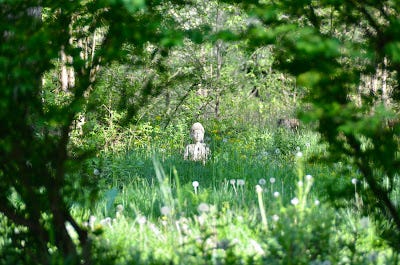We’re experiencing on a global level Zorba’s full catastrophe of the human condition. The improbable experiment of human life—along with a lot of other life forms, plant, animal, plankton, bacteria, et cetera, to which we are inexorably linked on planet Earth and which, in many cases, we barely understand—is up for grabs. The cockroaches will thrive no matter what transpires, as will microorganisms. But the world we love and cherish, depend on and belong to may very well be harmed beyond recognition if we don’t wake up and come to know our own minds and hearts in a much less self-centered way.
Paraphrasing Einstein, the mindset that creates a problem isn’t usually capable of solving the problem. We need a new mind, a mind of nonharming, a mind predisposed to deep insight, selflessness, and compassion. And the dharma in its most universal expression offers immediate access to that new mind and its ongoing cultivation because, in many ways, it is already here. Is it simple? Yes. Is it easy? No, it seems to be just about the hardest work in the world for us humans to wake up and set wakefulness as our default mode.
My hope is that we can wake up to the name that biologist and physician Linnaeus gave us, homo sapiens sapiens—which means the species that is aware and is aware that it is aware—and embody that as best we can, as a practice, in every aspect of our being. Let’s instantiate it in our laws, in our governance. Is a more compassionate and just Democracy 2.0 an ideology? I don’t think so. Nor is it a prescription. It’s an aspiration that can develop and mature over time as more and more people engage with and embody this kind of universal dharma understanding based on embodied wakefulness, and come to see taking one’s seat, both metaphorically and literally, alone and together, as a radical act of sanity and love, of selflessness and wisdom and belonging.
~ Jon Kabat-Zinn
from The Mindful Future in Lion's Roar Magazine


